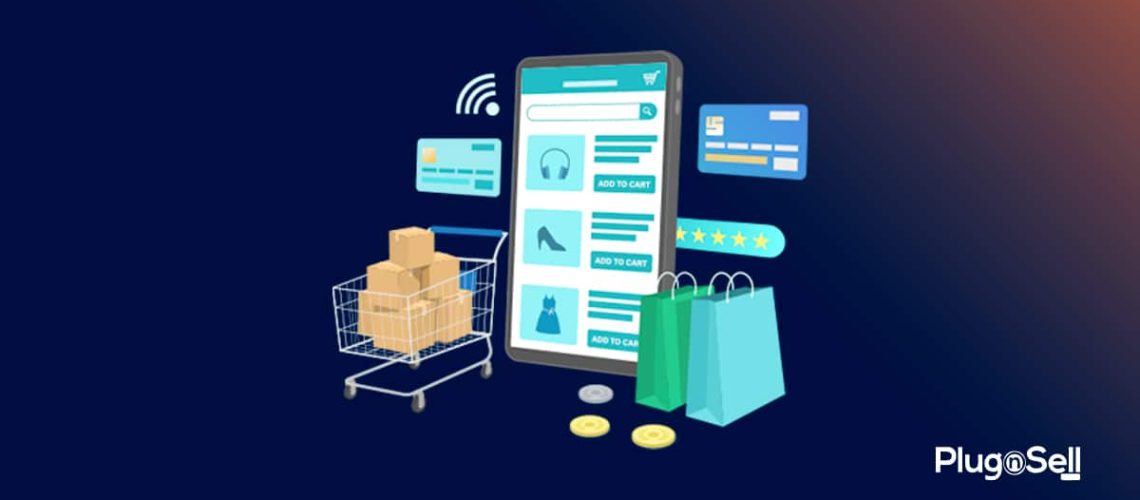In the Philippines, the COVID-19 pandemic has propelled the era of online shopping. This means the competition in selling products or services online has become fierce. Googling your products shows a few competitors selling the same items near you. You may have even spent money to attract customers, such as putting up banners or digital billboards. But the reach is quite limited. Many people lose interest if they have to travel to your physical store.
This is why online shopping has become the trend. Online stores are websites where customers can buy products or avail of services. This is a form of electronic commerce instead of the traditional brick-and-mortar retail business. It is the best way to sell products online since it allows consumers to buy goods over the internet. Buyers can browse and buy products without ever stepping inside your shop.
The three most common ways of selling products online are:
1. B2C (Business-to-Consumer).
The transaction is between the manufacturer or service provider and the buyer;
2. B2B (Business-to-Business).
Trading is between two MSMEs or entrepreneurs; and
3. B2B2C (Business-to-Business-to-Consumer).
The online trading of B2C and B2B has an intermediary. This method is most commonly used by online stores. Since this is not a direct trade, product quality is not assured and may result in refunds or return of goods.
Advantages of Online Store
Online stores allow people to shop for their product or service of choice, anytime, anywhere. Consumers can browse through a much wider variety of products than in physical stores since there is no space limitation. Ecommerce has enabled customers to buy from any supplier, anywhere in the world.
According to Business World, 72% of our economic output is attributed to private consumption. Surprisingly, before the pandemic Filipinos were not quick adaptors to E-commerce. Statistics showed that only 2% of Filipino netizens purchased goods or services online.
But all that changed when the pandemic struck, busy streets and stores became empty. Home confinement forced consumers to shop online. From a sales turnover of only $500 million in 2015, eCommerce growth doubled in the first six months of 2020 compared to 2019. It is predicted to top $9.7 billion by the year 2025.
Even with the more relaxed physical distancing measures, online stores enjoy a fast trade. An increasing number of consumers shop online.
Here are the top advantages of online stores and some of the most common reasons why entrepreneurs and MSMEs should not miss out on all the action:
1. Bigger Target Market.
Filipinos are known for being avid internet users, spending 9 hours and 45 minutes online daily. Having your own online store may help expand your market reach. While you continue catering to your local market, your online shop can also sell to people from other provinces or even outside the country.
Another thing is you can also offer different payment methods that can appeal to your customers such as the Buy Now Pay Later or BNPL and Cryptocurrency. This minimizes the traditional limitations to retail growth. All you need is a solid digital marketing strategy.
2. Open 24/7.
Online stores can operate non-stop. Most store owners sleep on time. You don’t have to worry about paying overtime to employees, or special rates during holidays. You don’t even have to stress about electric bills when only one customer is browsing at midnight.
3. Reduce Overhead Costs.
Customers know that product delivery takes time. Your stock inventory doesn’t need to be hundreds. This eliminates the need for a massive warehouse. It also minimizes almost all overhead costs of a physical store such as electricity, display space, and employees, among others.
4. Customer Intelligence.
This is a method of gathering and analyzing data related to your customer’s needs. You can use website analysis tools to develop appropriate strategies to attract customers.
Disadvantages of Online Stores
While there are advantages of an online store, there are also some risks. Not all eCommerce shops are successful. The majority of these failures are caused by the following reasons:
1. Copycats.
Since many customers browse online shops looking for the cheapest items, fake products now flood the market. Good customer service and products are some of the keys to fostering customer loyalty.
2. Hidden Costs.
“Free shipping” and other postage costs can add up. Ownership costs, permits, maintenance and support, marketing, storage, and communications are part of the overhead costs. Not to mention the cost of designing and putting up your eCommerce store.
3. No Face-to-Face Interaction.
It is hard to establish trust between companies and customers if there is no physical store. The sense of touching, wearing, and trying-on products is a definite advantage. Your track record or review can help build your brand reputation to build up customer trust.
4. Legal Concerns.
Website security should be a priority to protect transactions. The law is quite firm about customer rights. You have to defend yourself and your buyers against online fraud, identity theft, and other cybercrime activities.
Creating a direct connection with your buyers is very important in the long run. If you depend on online marketplaces in selling your goods, “your” customers are not really yours. These companies may decide to create and sell products that are like yours, shutting you out of your customer base. This is because only the platform has access to your customer’s contact number, email, or physical address.
You may hesitate about putting up your own online store. This could be because of related costs such as Web hosting and domain fees, aside from inadequate technical skills. But the reality is that the longer you waver, the more you are wasting time and opportunity to earn income.
Here’s another article about the 10 Best Online Store Platforms that You Can Consider for your Business. Read on for a breakdown of some of the best online store platforms available today.
So have you come to a decision? Online shopping is now part of the new normal. This is why MSMEs must have their online store. Don’t worry, we at TekWorx PLUG n SELL specialize in helping Filipino MSMEs and business owners in building their 100% OWNED and Branded Online Store. This is pre-designed and pre-developed by experts at the introductory price of only Php 11,980 per year!
Shopping before and now has changed over the years. If you’re not going to adapt to the changing business environment, surely you are going to be left behind. Remember, those who convert to online selling the fastest while ensuring product quality and reliability of transactions has the advantage!



